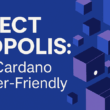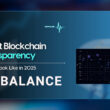Argentina is famous worldwide for football, steaks, tango, inflation and corruption. It’s also one of the Latin American countries with the highest number of social plans in the region. These social plans are often the target of criticism from a portion of society, but they also function as a safety net for a never ending rise in poverty and indigence.
The latest data from the World Bank in 2019 shows a 22% population coverage for these social safety net programs. This percentage is probably higher today, four years later after the economic hardships that the pandemic brought. This safety net coverage represented 4.5% of the country’s GDP in 2021 according to a study by a local newspaper. Between 2002 and 2010 the amount of beneficiaries to these social programs increased by 369,2%. However, since this increase in coverage is financed by public debt and monetary issuance, poverty and indigence keeps going up because inflation washes away the value received from them.
Another negative aspect of these social plans is that they involve a lot of bureaucracy and every administration uses it for their own political gain. Regardless of their position in the ideological spectrum, both left and right leaning parties take advantage of the embedded system of social welfare to gain support in the upcoming elections. This, of course, breeds corruption and malpractice in the administration and allocation of public funds.
A solution to this problem would be to take away the power of assigning these social programs from bureaucrats. Just like Satoshi Nakamoto invented bitcoin to take away money creation from politicians and the government. In order to do that, each and everyone of the 46 million Argentine citizens would need to have their own decentralized self-sovereign identity or SSI for short. There are many projects on the Cardano blockchain building these kinds of solutions, but the main one is Atala Prism developed by IOG, the same company that develops the Cardano blockchain.
Right now in Argentina the main document that we use to prove our identity is the DNI or national identity document. We use it when we pay with a credit card, when we go to the bank or to prove our identity at the farmacy with a prescription from our doctor. However, we need another document that proves that we are capable of driving a car or a passport to leave our country and enter another. All of these documents and information about ourselves are hosted in silos of centralized servers owned and maintained by different government entities. Which also don’t have a good track record of keeping hackers at bay.
The solution to these insecure, inefficient and outdated centralized identity keeping records are the decentralized self-sovereign identities. This technological innovation is at the forefront of decentralized solutions made possible thanks to blockchain technology. With SSI every Argentine citizen would be the sovereign of their own data, instead of being the government the one that grants their citizens access to their own records, it would be the citizenship who grants the government access to their own data.
One of the barriers of implementing this technology nationwide would be access to internet connection, a must for accessing the SSI. According to the World Bank in the year 2021, 87% of the population had access to the internet. On the other hand, there were 54 million mobile cellular subscriptions in the year 2020 in a country of 45 million people during the same time period. Although it’s not a full coverage of the population, since some remote areas still don’t have access to basic infrastructure, there are enough mobile phones even in the lowest strata of society to move forward with the implementation.
IOG has already been working on implementing Atala Prism in Ethiopia. Titled the “world’s biggest blockchain deployment”, this partnership between Cardano’s blockchain engineering company and a sovereign State in Africa seeks to grant “tamper-proof records of educational performance across 3,500 schools and five million students to instantly verify grades”. Unfortunately, Ethiopia has been involved in a bloody civil war which has halted the progress on implementing this new technology in the educational system of the country.
The implementation of Atala Prism in Argentina would, therefore, be a lot more ambitious than the one in Ethiopia. From covering five million students to 45 million citizens, it represents a 900% increase in the issuance of decentralized self-sovereign identities. This, of course, would need to be done in phases to guarantee a proper roll-out and coverage. The first phase could cover the biggest social program called “Asignación Universal por Hijo” or Universal Child Allowance in English, commonly known as AUH. This program was born from the experience of a similar program in Brazil called “Bolsa Familia”, which provides financial aid to poor families with kids. In order to be eligible, families have to ensure that children attend school and get vaccinated.
In Argentina, families receiving the AUH must present once a year the completed form of the Universal Allowance Booklet to verify school attendance, health controls and up to date vaccination schedule of their children, which allows them to access the collection of the 20% accumulated during the previous year. This process can be made much more efficient by implementing decentralized SSI. Instead of having to present a form once a year to verify school attendance and health controls, this can be done much more efficiently in real time by connecting the SSI to the public school records and public healthcare system.
A decentralized SSI not only can provide value to Argentine citizens by simplifying and making more efficient the distribution and record keeping of social programs, but can be a great asset for the millions of people that live in the shadow economy. This research paper from the Word Bank provides an estimate of the shadow economy for 162 developing countries between 1999 and 2007. During this period of time Argentina had an average of 25% of the economy in the shadows. This means people working on low pay jobs without retirement or health care coverage. Neither the workers or the employers pay taxes for their economic activity either. Which means less tax collection to cover the social programs, which leads to an increase of the monetary base to cover the increasing fiscal deficit, which leads to higher inflation and poverty.
These workers in the shadow economy are often the same recipients of social programs. Using the welfare system to complement their low wages and stay above the poverty line. However, this also creates a vicious circle of reliance on the State’s assistance and difficulty to exit the shadow economy to obtain a better paying job with retirement and health care coverage. Atala Prism can therefore provide much needed identity to these forgotten workers who oftentimes don’t have the luxury of having a financial identity in the regulated financial system which leaves them exposed to loan sharks and other extortive practices found in black markets.
In the opinion article I wrote on April 29th titled “Why Argentina should adopt Bitcoin and not dollarize” I provide a quick overview of the socioeconomic structure of the country and a quick rundown of major events that explains the position it finds itself now. I argue that the only way out of the neverending economic crises is to adopt bitcoin as legal tender and promote a public-private bitcoin mining program. Now I want to propose the convergence of both Bitcoin and Cardano blockchains as tools for social and economic prosperity.
Bitcoin mining by the Argentine government can be used to finance the social programs mentioned in this article. More so, the economic value created by transforming energy into a scarce resource can be elevated to finance a nationwide universal basic income (UBI) program that, with time, can replace all the different social plans to provide an universal source of income to elevate every citizen above the poverty line. Atala Prism therefore can provide the decentralized SSI necessary to validate the identity and allocate the satoshis payments to every Argentine.
Final thoughts
Argentina has been in constant social and economic turmoil for most of its history. Since the times of the colony to modern days, the brief moments of sovereignty and prosperity have been met with violent ends. Blockchain technologies such as Bitcoin and Cardano provide the tools for a peaceful revolution. From proof-of-work, with bitcoin mining to create our own strong scarce currency, to proof-of-stake with Cardano’s governance and decentralized self-sovereign identities, the tools to take back our country are at our disposal. We have brains and the resources necessary to make it happen, we are just missing the will to do so.










